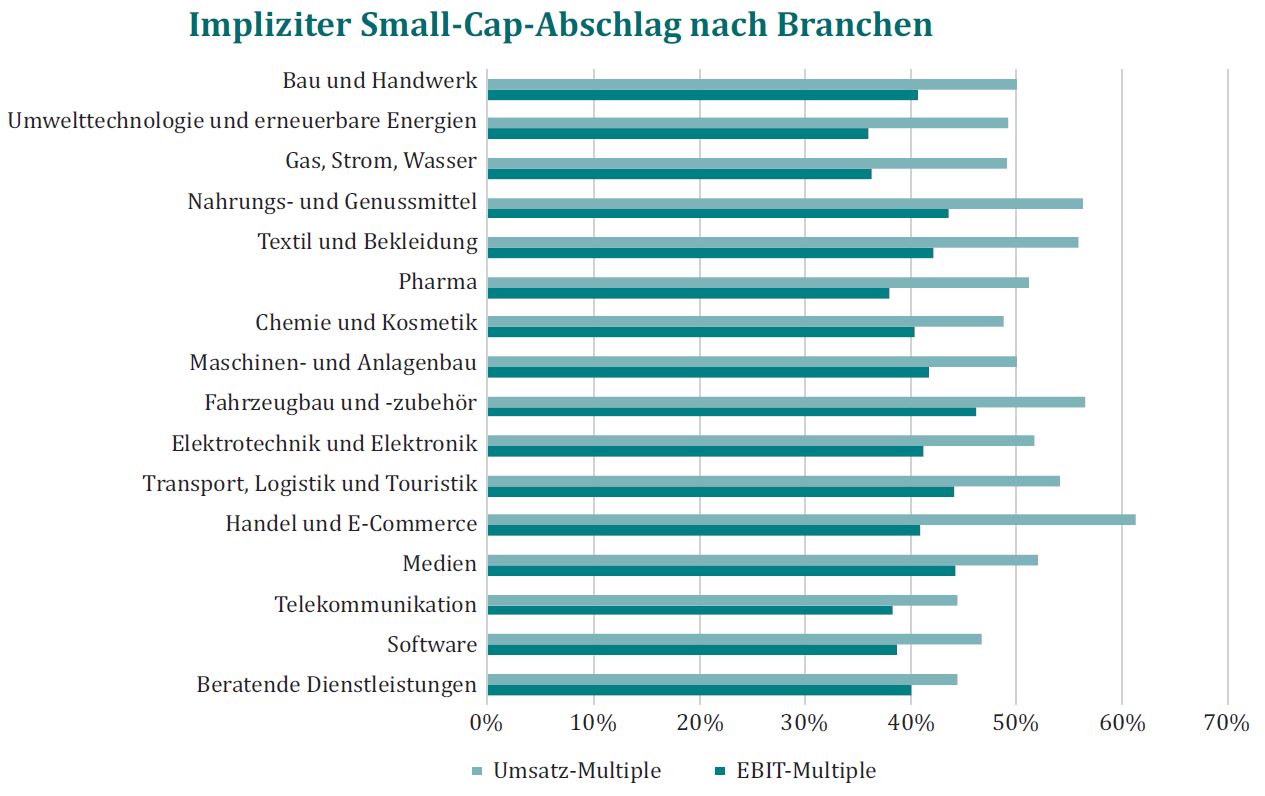Premiums and discounts in the business valuation of SMEs – theory, practice and empirics

Introduction
There are no special methods for the valuation of small and medium-sized enterprises (SMEs); however, their special features must be taken into account in business valuations. Special features in this sense are all deviations from the standard object of valuation theory, i.e. an investment that can be sold at any time in a company that is independent of the owners and has an unlimited life. In this respect, an SME is “special”: its success depends on the owners, the shares cannot be sold easily, and the insolvency risk is comparatively high.
In principle, these circumstances can be taken into account either when planning the financial surpluses or when discounting them. Preferable – because it is transparent and conforms to the model – but costly is the modelling of the special features in the numerator. Simpler – but less well-founded and therefore controversial – is a corresponding surcharge on the discount rate or an overall discount on the enterprise or share value.
Valuation practice usually takes the easier route with a pragmatic but circular reference to itself. This is inconspicuous when it comes to calculating subjective enterprise values in the context of the advisory function. If, on the other hand, an objectified valuation is required, every assumption and every step of the valuation must be comprehensible and ultimately defensible. A reference to practice only helps here if it is also theoretically supported and empirically verifiable or does not seem outlandish. In company valuations, and especially in the current market situation, it is not always possible to have both, i.e. a coherent theoretical model and its empirical confirmation.
We are aware that valuation theory is critical of mark-ups and mark-downs. In this article, we will not be able to provide the theory that has been lacking up to now. However, models without empirical support offer little in the way of explanation or knowledge. In other words, empirical research should be an occasion to question theoretical models and, if necessary, to develop them further. Our aim with this contribution is to provide Swiss valuation practice with empirically supported recommendations and to be prepared for theoretical objections. This provides a further incentive to return to the theory of this phenomenon.
Read the full article from the Yearbook Finance and Accounting 2021 here (in German).

